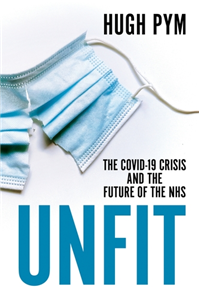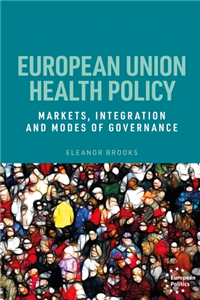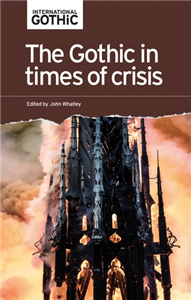Your Search Results
-
Panenka
We were born more than ten years ago as a monthly paper magazine, with the experience that this entails in public distribution. The central theme of our magazine is football, but always with an eye on culture, politics and society, and treated from slow journalism. Three years ago, we started publishing books with the same philosophy: football as a theme, but in contact with many other edges. We've already published eight books, three every year. Among the books there is variety: novels, history, journalism, biographies, Spain, England, Africa... We keep a geographic variety.
View Rights Portal
-
Promoted ContentHumanities & Social SciencesJune 2024
Pandemic culture
by Ben Walmsley, Abigail Gilmore, Dave O'Brien
-
Promoted ContentHumanities & Social SciencesSeptember 2024
Unfit
The COVID-19 crisis and the future of the NHS
by Hugh Pym
Reporting from the front lines of the pandemic, celebrated BBC journalist Hugh Pym takes readers on a gripping journey to the heart of the UK's COVID-19 crisis. He unearths shocking revelations about the failings of the British state and the Whitehall machine, shedding light on the consequences of woeful unpreparedness and misguided policies. This hard-hitting exposé draws on untold stories from the corridors of power, providing an insider's perspective on the drama, personalities and critical decision-making processes. Going beyond individual accounts, it presents a comprehensive assessment of the UK's preparedness, lockdown measures and response strategies. A tale of resilience and devastating consequences, Unfit challenges the very foundations of the UK's response to the pandemic, leaving no stone unturned in its quest for truth. Finally, it looks ahead to ask what is in store for the future of the NHS.
-
 Trusted Partner
April 2022
Trusted Partner
April 2022Corona Chaos. Confessions from a pharmacist
by Simon Krivec
More than two years of pandemic is more than two years of corona clutter. Only a staggering level of helpfulness, improvisation and flexibility prevented the healthcare system from collapsing completely. In this highly topical book, pharmacist Simon Krivec tells of his incredible experiences and the stormy ups and downs of pandemic madness, missing masks and disinfectants, and the feeling of having been totally abandoned by a helpless state. We learn, for instance, of the short-term procurement of large quantities of ethanol and the transportation of the highly flammable substance, and just what lured the author – and 71,400 euros in cash – to visit the port of Neuss at night.
-
 Trusted Partner
March 2021
Trusted Partner
March 2021Systemically Relevant
Behind the scenes of nursing
by Maximiliane Schaffrath
In 2008, the banks that had been bailed out with billions by the government were considered “systemically relevant”, in the corona pandemic of 2020 it was members of poorly paid professions such as healthcare workers. Reading Maximiliane Schaffrath‘s book on the situation regarding healthcare and nursing staff, it seems almost miraculous that Germany had managed to escape a corona disaster for so long. She gives a very personal and gripping account of the stages in her own training – and the unsustainable conditions that are suffered not only by the people who are supposed to care for and look after us, but also by everyone who depends on them.
-
 Trusted Partner
Business, Economics & LawMay 2024
Trusted Partner
Business, Economics & LawMay 2024Governance, democracy and ethics in crisis-decision-making
The pandemic and beyond
by Caroline Redhead, Melanie Smallman
This book is a powerful addition to a developing literature informed by arts and humanities research carried out during the COVID-19 pandemic. Investigating the impacts of crisis governance and decision-making on people and populations, the book brings together microbial organisms and humans, children and data, decision-making and infection prevention, publics and process, global vaccine distribution and citizens' juries. Through its eight chapters, the book stimulates broadly-drawn discussions about exceptional executive powers in an emergency, the role of trust, and the importance of the principles of good governance - such as selflessness, ethics, integrity, accountability and honesty in leadership. The lessons drawn out in this book will support future decision-makers in both ordinary times and extra-ordinary emergencies.
-
 Trusted Partner
Geography & the EnvironmentSeptember 2020
Trusted Partner
Geography & the EnvironmentSeptember 2020We Can Do Better
by Arvay, Clemens G.
How Environmental Destruction Caused the Corona Pandemic and Why Ecological Medicine Can Save Us The corona crisis can repeat itself at any time. A book about the disease-causing mechanisms of environmental pollution, and an innovative guide out of the health crisis Clemens Arvay is an expert in the field of medical ecology. In WE CAN DO BETTER, he takes the current corona crisis as an opportunity to look far beyond and work out exactly why negative environmental factors are responsible for an increasing deterioration of public health. Yet the author also points the way out of the calamity, explaining how we ourselves and future generations can improve our health through a different approach to nature.It was only because of environmental factors that COVID-19 was able to become a pandemic. Thus, for Clemens Arvay the corona crisis represents a symptom of a much larger problem, namely, a natural habitat that is making humans sick. It is already known today that fine particulate matter intensifies not only corona but also influenza infections, thereby killing hundreds of thousands of people worldwide every year. Light pollution leads to a rapid increase in cancer, and even the abrasion of automobile tires inhibits our immune system. Clemens Arvay makes himself clear: this is our last chance to take control of the situation. After the corona crisis, we must never allow things to return to the way they were before. Arvay therefore calls for nothing less than an eco-medical revolution in healthcare; a different, less global and industrialized lifestyle. And he shows each and every one of us how we can utilize factors in our environment to protect our health, strengthen our immune system, and stay well. For readers of shinrin-yoku by Annette Lavrijsen
-
 Trusted Partner
Humanities & Social SciencesSeptember 2019
Trusted Partner
Humanities & Social SciencesSeptember 2019African security in the twenty-first century
by Stephen Emerson, Hussein Solomon
-
 Trusted Partner
The ArtsMay 2024
Trusted Partner
The ArtsMay 2024Adaptation and resilience in the performing arts
The pandemic and beyond
by Pascale Aebischer, Rachael Nicholas
This book offers insights into some of the digital innovations, structural adaptations and analogue solutions that enabled live performance in the UK to survive through the COVID-19 pandemic. It provides evidence of values-led policies and practices that have improved the wellbeing of the creative workforce and have increased access to live performance. Through sections that address digital innovations, workforce resilience and programming live performances outdoors and in community settings, this book provides practical insights into the challenges live performance faced during the pandemic. It shows how, in order to survive, individuals and companies within the sector drew on the creativity and resourcefulness of its workforce, and on new and existing networks. In these accounts, the pandemic functioned as catalyst for technological innovations, stock-taking regarding exploitative industry structures, and a re-valuing of the role of live performance for community-building.
-
 Trusted Partner
2020
Trusted Partner
2020Coronavirus
A guide for the pharmacy
by Prof. Dr. Walther Heeschen, Dr. Sylvia Wegner-Hambloch, Dr. Iris Milek and Dr. Andreas S. Ziegler
Although at first Covid-19 disease was only evident in China, during the months of January to March 2020, it spread across the whole world with far-reaching consequences. This guide contains ■ The background to the character of the virus and its spread ■ Various information about the consequences for the operation of a pharmacy, including an emergency plan ■ Precise instructions for the in-house production of disinfectants. The guide also tackles questions and problems relating to employment law that arise in connection with the risk of infection in public premises.
-
 Trusted Partner
February 2022
Trusted Partner
February 2022The Great Rift
How Society Drifts Apart and How to Counter It. An Essay
by Jean-Pierre Wils
Chaos flourishes beneath the surface – a deep fissure runs through our society Inside the pressure-cooker of the coronavirus pandemic, we see more clearly the volatile status of how we live together. Why were we unprepared, in spite of the numerous warnings over the years? Jean-Pierre Wils speculates that our society, which is already marked by tension and hectic stalemate, is riven by a deep division. In this case, the reality of the crisis triggered by the pandemic is only the prelude to a much deeper crisis: climate change. But how can we manage it? To do so Wils advocates for a “culture of interim solutions” – a culture of thoughtfulness, soul-searching, slowing down and reorienting towards social and ecological sustainability ...
-
 Trusted Partner
September 2021
Trusted Partner
September 2021Tolerating Democracy!
About arguing in a society of indignation
by Karoline M. Preisler
Are we all still only moving around in our bubbles, unwilling and unprepared to engage in the positions of "the others"? Will only someone be heard who polarises and defames loudly enough, who ignores facts, denies them, twists them, who even calls for violence? The debate over the corona measures has given a new urgency as we address the question of how democracy can be lived and protected in times of an erosion of the centre and social cohesion. Karoline M. Preisler asks herself these questions and, as a passionate democrat, advocates creating new tools and meeting places for the necessary dialogue on controversial topics such as the limits of freedom, religion, climate crisis, immigration and the family.
-
 Trusted Partner
Humanities & Social SciencesMay 2024
Trusted Partner
Humanities & Social SciencesMay 2024Knowing COVID-19
The pandemic and beyond
by Des Fitzgerald, Fred Cooper
Knowing COVID-19 demonstrates how researchers in the humanities shone a light on some of the many hidden problems of COVID-19, in the very depths of the pandemic crisis. Drawing on eight COVID-19 research projects, the volume shows how humanities researchers, alongside colleagues in the clinical and life sciences, addressed some of the major critical unknowns about this new infectious disease - from the effects of racism to the risks of deploying shame; from how to design an effective instructional leaflet to how to communicate effectively to bus passengers. Across eight novel case studies, the book showcases how humanities research during a pandemic is not only about interpreting the crisis when it has safely passed, but how it can play a vital, collaborative and instrumental role as events are still unfolding.
-
 Trusted Partner
Science & MathematicsApril 2021
Trusted Partner
Science & MathematicsApril 2021Medicalising borders
Selection, containment and quarantine since 1800
by Sevasti Trubeta, Christian Promitzer, Paul Weindling, Hastings Donnan
The research of pandemics, epidemics, and pathogens like COVID-19 reaches far beyond the scope of biomedicine. It is not only an objective for the health, political and social sciences, but epidemics and pandemics are a matter of geography: foci and vectors of communicable diseases continue to test the efficacy of medical control at state borders. This volume illuminates these issues from various disciplinary viewpoints. It starts by exploring historical models of quarantine, spatial isolation and detention as precautionary means against the dissemination of disease and contagion by border crossers, migrants and refugees. Besides the patterns of prejudice with which these groups are confronted, the book also deals with various kinds of fear of contamination from outside of the nation state. The contributors address the implementation of medical techniques at state borders in the twentieth and early twenty-first centuries, as well as the presently practiced measures of medical and biometric screening of migrants and refugees. Uniquely, this volume shows that the current border security regimes of Western states exhibit a high share of medicalised techniques of power, which originate both in European modernity and in the medical and biological disciplines developed during the last quarter of the millennium. Drawing on the collective expertise of a network of international researchers, this interdisciplinary volume is essential reading for those wishing to understand the medicalisation of borders across the globe, from the early eighteenth century up to the present day.
-
 Trusted Partner
MedicineMay 2024
Trusted Partner
MedicineMay 2024Creative approaches to wellbeing
The pandemic and beyond
by Victoria Tischler, Karen Gray
A compilation of case studies illustrating the use of arts, culture and other community assets individuals and communities used to cope and develop resilience during the Covid-19 pandemic, demonstrating valuable lessons that might help us develop resilience in similar future crises.
-
 Trusted Partner
Trusted Partner
-
 Trusted Partner
2022
Trusted Partner
2022Covid Vaccination
Guidance tools for the pharmacy
by Martina Schiffter-Weinle,Dr. Dennis A. Effertz (eds.)
The new SARS-CoV-2 virus appeared in December 2019. It caused a pandemic, whose consequences will certainly continue for a long time to come. The vaccines, developed in record time, proved the most effective tool in alleviating the acute, hazardous situation. Since the beginning of 2022, pharmacies have also been able to offer COVID-19 vaccinations and contribute to the collective protection strategy. With this guide, everything is ready for COVID-19 vaccination in the pharmacy.
-
 Trusted Partner
Nursing & ancillary services
Trusted Partner
Nursing & ancillary servicesLiving Through Uncertainty and Insecurity
How to Deal with People in Unpredictable Life and Health Situations?
by Thomas Hax-Schoppenhorst / Jürgen Georg
Uncertainty manifests itself in local and everyday life contexts, but also in the global biodiversity, the coronavirus pandemic and climate crises as well as the wars of these days. Since nothing seems to be as certain as uncertainty anymore, it is about to become the defining phenomenon of our time. In this context, uncertainty and insecurity also frequently occur in connection with acute and chronic health situations. The authors define and differentiate the concepts of uncertainty, insecurity and risk and illuminate their facets from a nursing, medical, sociological, psychological, and theological perspective.
-
 Trusted Partner
Humanities & Social SciencesJuly 2025
Trusted Partner
Humanities & Social SciencesJuly 2025European Union health policy
Markets, integration and modes of governance
by Eleanor Brooks
The first book-length analysis of EU health policy since the COVID-19 pandemic, encompassing the creation of the European Health Union and the Recovery and Resilience Facility, this volume offers a timely and accessible analysis of the EU's health policy, institutions and governance. Focusing on the EU's health objectives and how they are pursued, it offers a detailed overview of the development of EU health policy, and five in-depth case studies of specific policy fields. The book will appeal to academic and policy audiences interested in the EU's health objectives and how it pursues them.
-
 Trusted Partner
Literature & Literary StudiesDecember 2025
Trusted Partner
Literature & Literary StudiesDecember 2025The Gothic in times of crisis
by John Whatley
The Gothic in times of crisis reflects contemporary society, showing how the Gothic modes continually resets its own forms to encompass each new reality, each new apocalypse, each new plague or crisis. This collection expands oncurrent scholarship to show how the Gothic challenges our understanding of both older and recent crises and, in turn, disturbs all genre complacencies to expose and confront the problems and contradictions in what our world has been, has become, or is in danger of becoming. This collection explores Gothic's current relevance to the contestations of ideas and the underlying and visible conflicts it dramatizes across a wide range of media. In various ways, it reveals what happens to Gothic modes now they confront the increasingly Gothic realities of our times, sometimesby recalling earlier crises and ideological contestations leading up to them.
-
 Trusted Partner
July 2021
Trusted Partner
July 2021My Life with Viruses
A researcher’s history of the fascinating world of pathogens
by Ernst-Ludwig Winnacker in association with Jeanne Rubner
In times of the coronavirus pandemic many people have certainly condemned them, but Professor Ernst-Ludwig Winnacker has dedicated his life to researching them and is intrigued by viruses – even if sometimes he is keenly aware of their fatal effects. To mark his 80th birthday the biochemist describes the co-evolution and co-existence as well as the eternal ‘battle’ between humans and viruses. Winnacker takes up the cause of these ‘biological elements between animate and inanimate nature’ because they play an important role in fundamental research and genetic technology, and without them human beings would not be what they are.





























